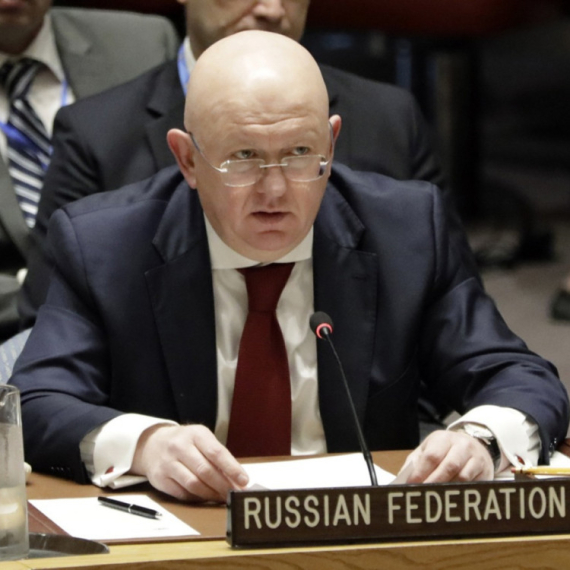Central bank "committed" to floating exchange rate
National Bank of Serbia (NBS) Governor Jorgovanka Tabaković stated on Friday that the central bank is not considering a change in the exchange rate regime.
Friday, 26.04.2013.
20:07

BELGRADE National Bank of Serbia (NBS) Governor Jorgovanka Tabakovic stated on Friday that the central bank is not considering a change in the exchange rate regime. Instead, it "remains committed" to the regime of target inflation and managed float exchange rate. Central bank "committed" to floating exchange rate "When choosing the existing exchange rate regime, NBS decided to keep the sovereignty of the monetary policy so as to be provide an adequate response to blows from the economic environment," Tabakovic said. According to her, "A flexible exchange rate proved to be an efficient absorber of external blows as it made it possible for balance to be restored through changes in the exchange rate and with the preservation of foreign exchange reserves, without the need for adjustments through drastic cuts in pensions and salaries." Such adjustments contribute to macroeconomic stability but this cannot replace a responsible fiscal policy and structural reforms in the long-run, Tabakovic said during a roundtable discussion on the regime and policy of exchange rate in Serbia and its limitations and possibilities. Tabakovic underscored that the meeting was organised so as to enable economists and bankers to voice their stands on the benefits and shortages of various exchange rate regimes in the current situation in Serbia. The debate also covered the interdependence between the regime and the exchange rate policy and macroeconomic stability and the influence of the exchange rate on the country's financial stability. The participants agreed that both exchange rate regimes have their advantages and downsides and depend to a considerable degree on specific features of a country and its economy. The opinion prevailed that the fixed exchange rate regime, including the currency board, is not a better solution for Serbia than the float exchange rate under the given economic circumstances, taking into account the country's economic structure, degree of the economy's openness, liberalisation of capital flows and current internal and external deficits. The meeting gathered representatives of the World Bank and the International Monetary Fund, members of the Council of the NBS governor, former NBS governors Dejan Soskic and Kori Udovicki and member of the Fiscal Council Vladimir Vuckovic. (Tanjug) Tanjug
Central bank "committed" to floating exchange rate
"When choosing the existing exchange rate regime, NBS decided to keep the sovereignty of the monetary policy so as to be provide an adequate response to blows from the economic environment," Tabaković said.According to her, "A flexible exchange rate proved to be an efficient absorber of external blows as it made it possible for balance to be restored through changes in the exchange rate and with the preservation of foreign exchange reserves, without the need for adjustments through drastic cuts in pensions and salaries."
Such adjustments contribute to macroeconomic stability but this cannot replace a responsible fiscal policy and structural reforms in the long-run, Tabaković said during a roundtable discussion on the regime and policy of exchange rate in Serbia and its limitations and possibilities.
Tabaković underscored that the meeting was organised so as to enable economists and bankers to voice their stands on the benefits and shortages of various exchange rate regimes in the current situation in Serbia.
The debate also covered the interdependence between the regime and the exchange rate policy and macroeconomic stability and the influence of the exchange rate on the country's financial stability.
The participants agreed that both exchange rate regimes have their advantages and downsides and depend to a considerable degree on specific features of a country and its economy.
The opinion prevailed that the fixed exchange rate regime, including the currency board, is not a better solution for Serbia than the float exchange rate under the given economic circumstances, taking into account the country's economic structure, degree of the economy's openness, liberalisation of capital flows and current internal and external deficits.
The meeting gathered representatives of the World Bank and the International Monetary Fund, members of the Council of the NBS governor, former NBS governors Dejan Šoškić and Kori Udovički and member of the Fiscal Council Vladimir Vučković.





















































Komentari 2
Pogledaj komentare